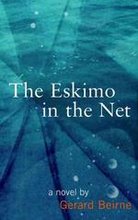
Well gosh darn it, but that Bakin Rapscallion has to get in on the act. Not alone does he have the gall to leave a comment on
The Friendship of Poetry, but he asks me, "What song(s) will you be posting for the out-going Bertie Ahern?"
Dirges, my friend, and if not, patriotic fight songs with mad ferocious goats:
Ag gabháil dom sior chun Droichead Uí Mhóradha
Píce im dhóid 's mé ag dul i meithil
Cé casfaí orm i gcuma ceoidh
[gach duine] Ach pocán crón is é ar buile...
[curfá]Ailliliú, puilliliú, ailliliú tá an puc ar buile!
Ailliliú, puilliliú, ailliliú tá an puc ar buile!
[aonréad 2]Do ritheamar trasna trí ruillógach,
Is do ghluais an comhrac ar fud na muinge,
Is treascairt do bhfuair sé sna turtóga[g.d.]
Chuas ina ainneoin ina dhrom le fuinneamh...
[curfá]
[aonréad 3]
Níor fhág sé carraig go raibh scót ann
Ná gur rith le fórsa chun mé a mhilleadh,
S'Ansan sea do cháith sé an léim ba mhó.[g.d.]
Le fána mhór na Faille Bríce...
[curfá]
[aonréad 4]Bhí garda mór i mBaile an Róistigh
Is bhailigh fórsa chun sinn a chlipeadh
Do bhuail sé rop dá adhairc sa tóin ann[g.d.]
S'dá bhríste nua do dhein sé giobail...
[curfá]
[aonréad 5]
I nDaingean Uí Chúis le haghaidh an tráthnóna
Bhí an sagart paróiste amach 'nár gcoinnibh
Is é dúirt gurbh é an diabhal ba Dhóigh leis[g.d.]
A ghaibh an treo ar phocán buile...
[curfá]











